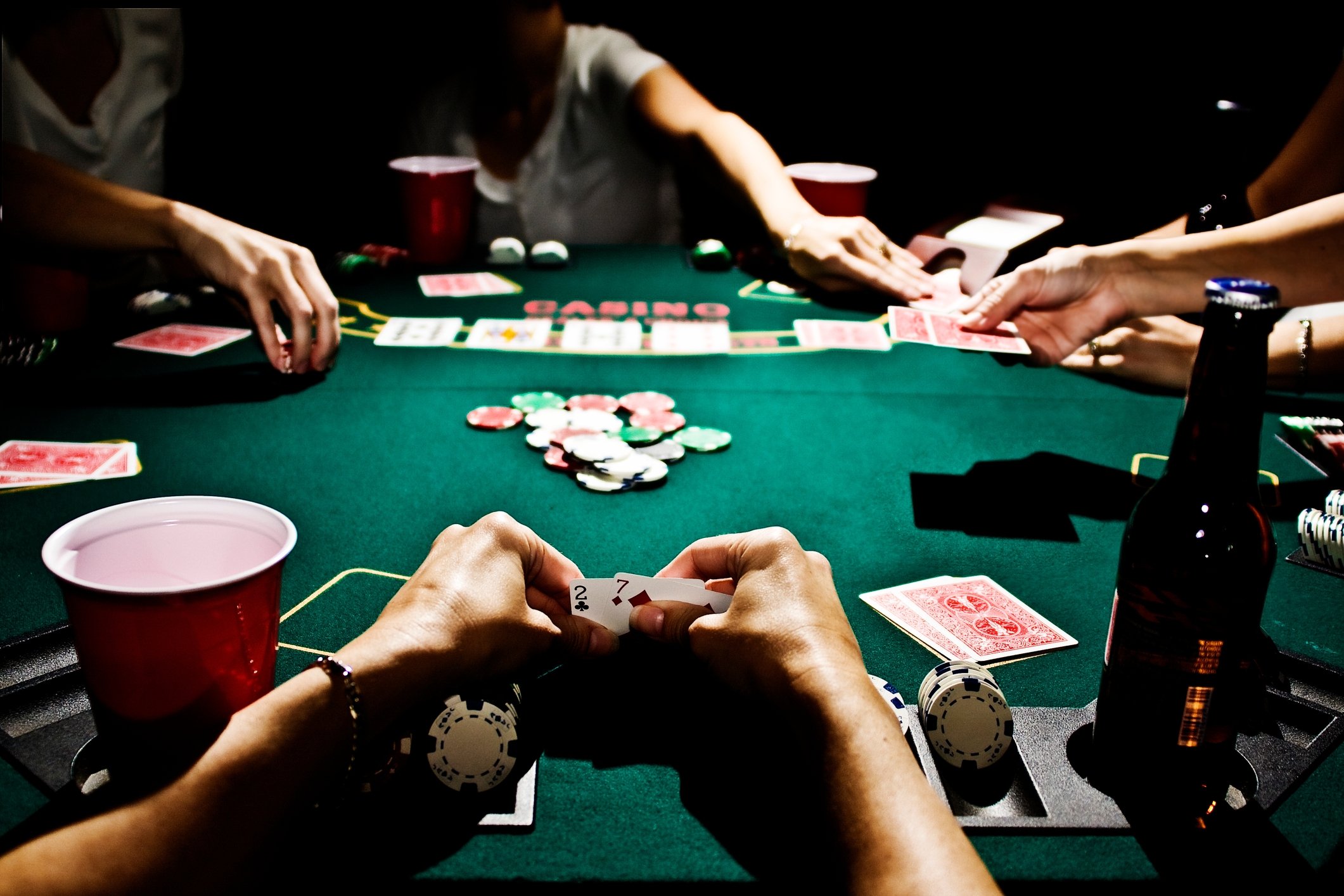Most people will occasionally (and perhaps unknowingly) breach one of the rules of poker etiquette. Perhaps by talking a little too much, getting a little over-excited or coming across as a little too cocky.
Swept away by the spirit of the whole thing, we all occasionally stray from the straight and narrow.
Still, there are some breaches to good poker conduct that are more or less acceptable than others. In this list, we’ll be taking a look at a few examples in the latter camp.
Fall foul of any of the following and you’ll find it hard to shake the reputation you’ll have carved out for yourself, however hard you try:
1 ‒ Playing at Tables That Are Totally Out of Your League
First up, this won’t necessarily annoy any of your fellow players. In fact, many of them will relish the chance to make the most of the easy pickings you represent. Even so, playing at tables that are way beyond your skill level is a sign of naïve amateurishness. If not, a touch of arrogance.
As a general rule of thumb, it’s never a good idea to buy into a table where you have even the slightest inclination that you will be the weakest player. It’s far better to set your sights on a table where you fit in somewhere central – maybe not the best, but also far from the worst.
Even if your goal is to challenge yourself, there are better ways to do it than to set yourself up for RE guaranteed loss…coupled with a large slice of humble pie.
2 ‒ Wasting Time for No Good Reason
Oftentimes, the pace of a game of poker is what makes it so exciting. Everything happens in fairly quick succession, and it’s a pretty action-packed encounter. Hence, it’s understandable how those simply looking to keep the game going get riled by those who seem intent on slowing things down.
This is something that can happen in a few ways – talking relentlessly and not realising it’s your turn, showing your cards in slow motion in an attempt to build drama, taking way too long to decide what to do and so on.
Irrespective of whether or not you are deliberately wasting time, slowing the whole game down for no good reason is a big no-no. It might not see you booted out of the game, but will make it highly unlikely that any of your opponents will want to play with you again.
3 ‒ Deceiving, Misleading or Mocking Inexperienced Players
Of course, it could always be you who turns out to be the most experienced player at the table. You may find yourself squaring off against one or more rank amateurs, who clearly have no idea what they’re doing.
In instances like these, the dignified and civilised thing to do is to show them respect. If not, tone your usual aggressive play down slightly to give them a fair chance at enjoying the experience. What you should not do under any circumstances is take advantage of their lack of experience.
Showing off, criticising them, condescending them and basically taking them to the cleaners – all signs of a clear jackass who really has no business playing poker with other people.
4 ‒ Cheating (or Attempting to Do So)
Successfully cheating at the poker table is practically impossible. By its nature, poker is a game that involves a bunch of people watch each other’s every move in the finest detail. Hence, if you think you can get away with cheating, you’re barking up a very bizarre tree.
Still, this doesn’t discourage a surprising proportion of punters from occasionally attempting to tip the odds in their favour. They try a little sleight of hand, they attempt to collude with one or more other players, they mark or fold cards for easy identification and so on.
The trouble is that in all of these cases, the whole thing can be spotted by even a rank amateur from a mile away. And if there’s one guaranteed way to fall out of favour with people – including those who previously trusted you – it’s by attempting to cheat them out of their money.
5 ‒ Acting Like a Big Shot When You Win
People who win hands of poker on a regular basis don’t make a song and dance about it. It’s nothing new to them, so they just take it in their stride. From the looks on their faces, you wouldn’t even know they’d won a dime.
By contrast, God-awful poker players who almost never win surprise themselves when things pan out in their favour. Consequently, they celebrate each and every win like they’ve just taken home the jackpot on a major international lottery.
All of which does two things – confirm your status as a terrible poker player, and rile everyone around you who’s not doing so well at the time. Taking wins and losses alike in good grace is the hallmark of a respectful and capable poker player.
That said, a tiny bit of smugness after playing the hand of a lifetime is perfectly permissible.
6 ‒ Disrespecting the Dealer
Last up, the only thing worse than disrespecting your fellow players is disrespecting the dealer. If you play poker in a real-life casino, the action will be overseen by a qualified and experienced professional. An individual who is only there to deal the cards, and has no influence over how the game plays out.
Nevertheless, there will always be those who take their frustrations out on these completely innocent folks, when things don’t go their way. They hit a losing streak or lose a tonne of money on a stupid move, only to blame the dealer for their misfortune.
This is, by far, one of the biggest breaches of poker etiquette in the book. Though frankly, players who blame anyone other than themselves for losing really shouldn’t be playing poker in the first place.
You might also find the following articles interesting:
- 10 Ways to Make Money While Gambling
- Beating the Blues During Lockdown: Why Not Become a Poker Pro?
- A Beginner’s Guide to Playing Online Slots













